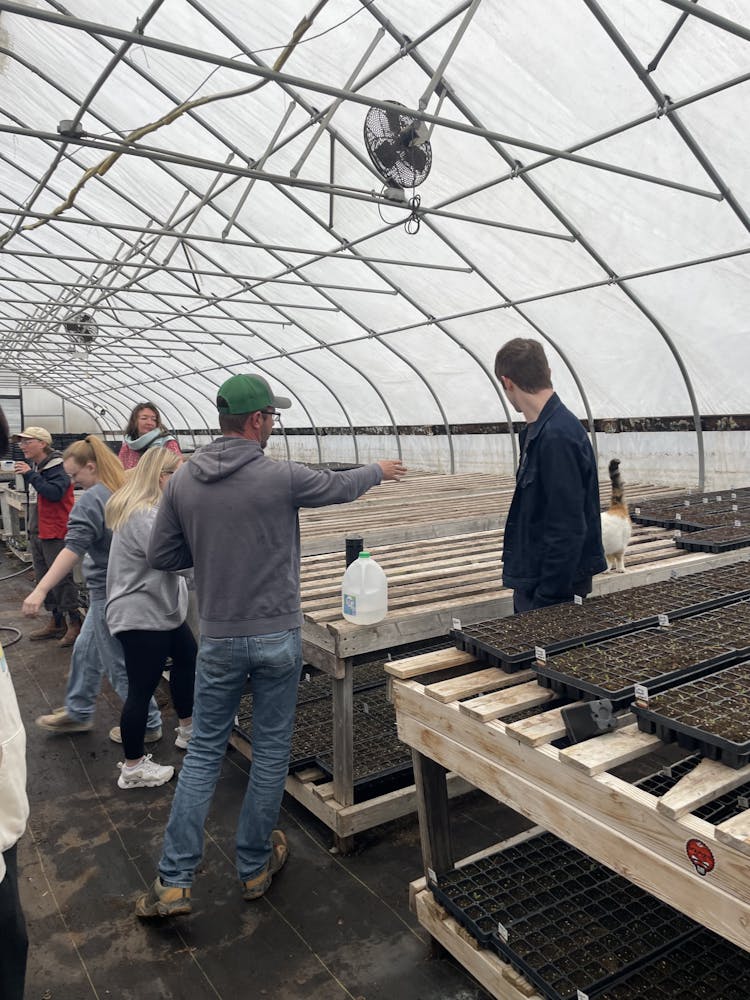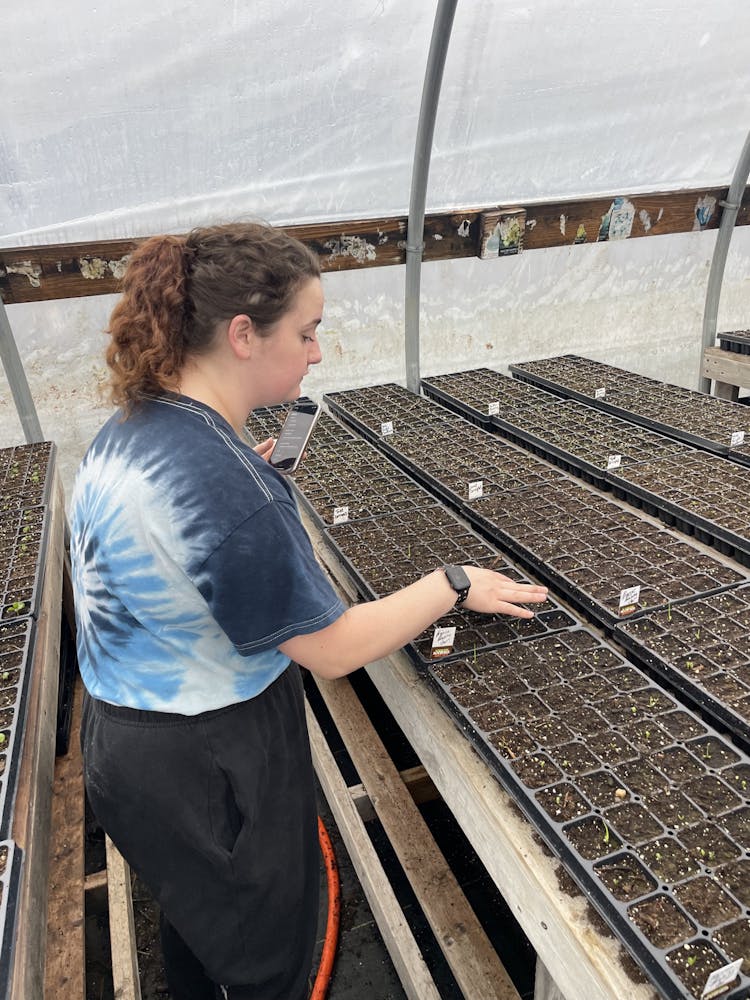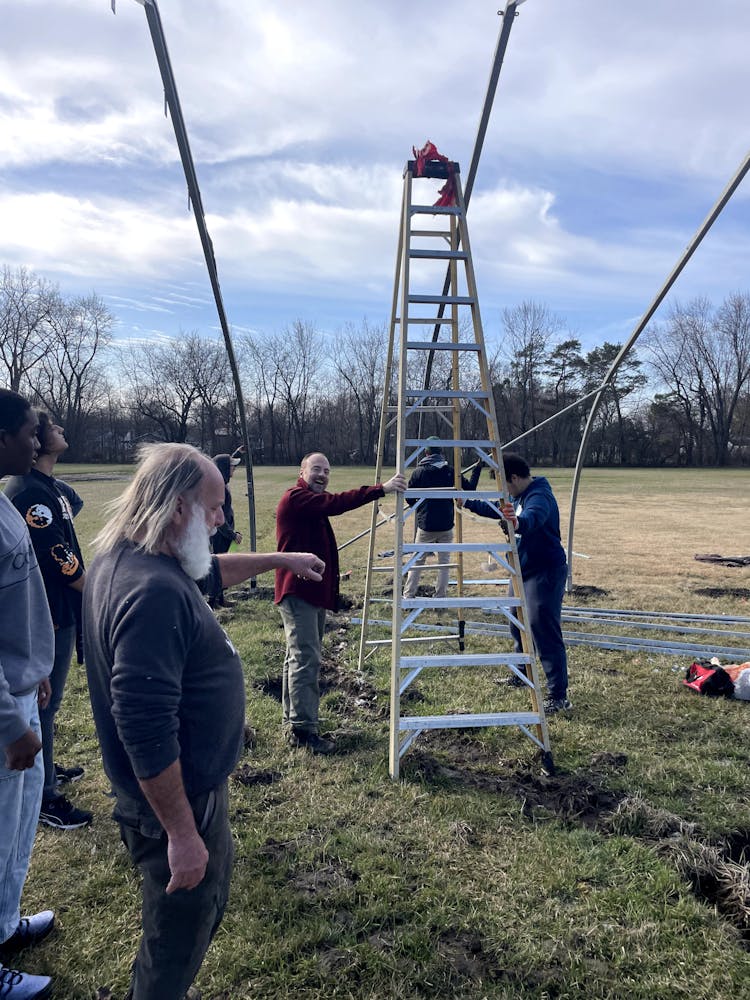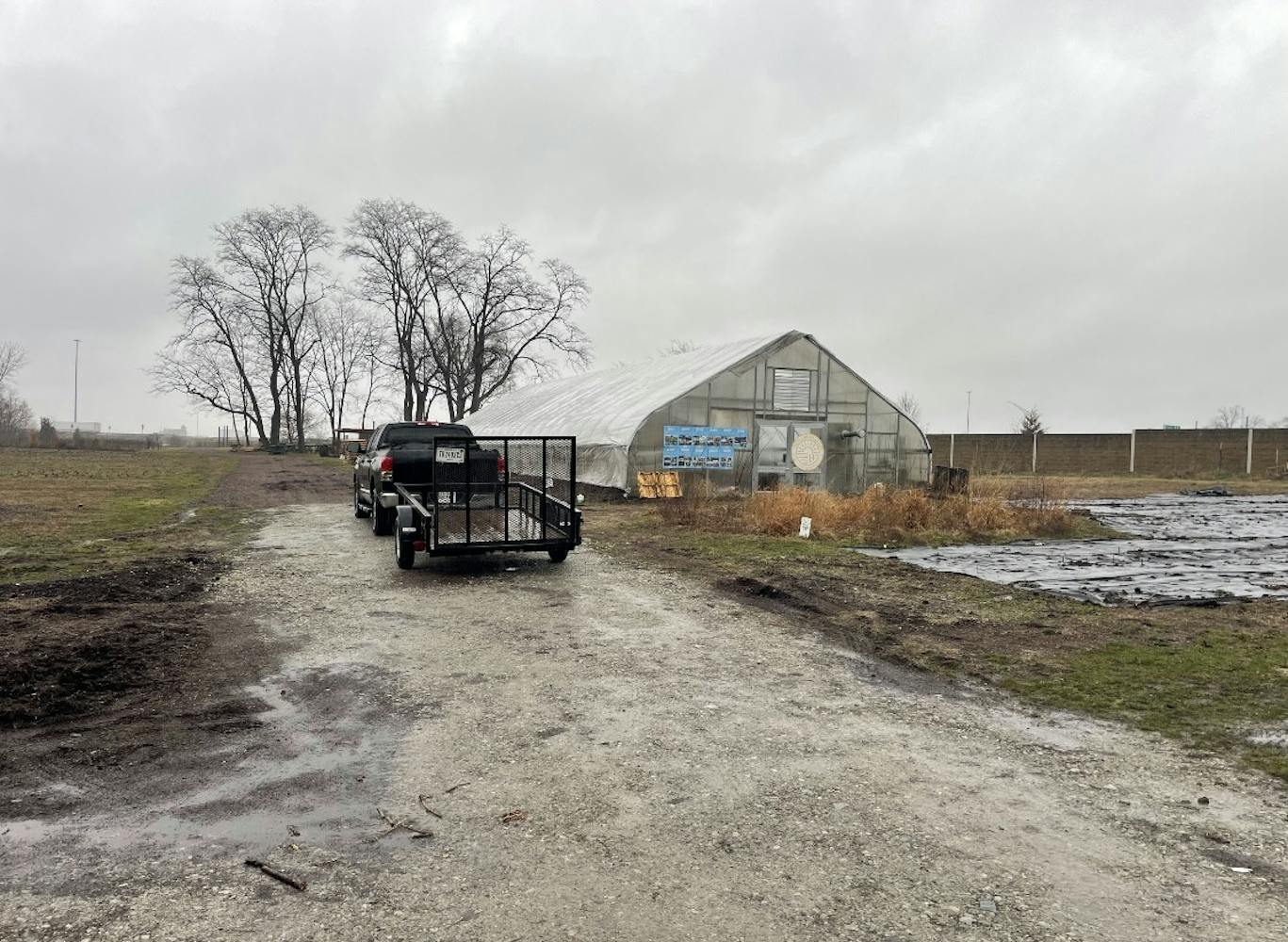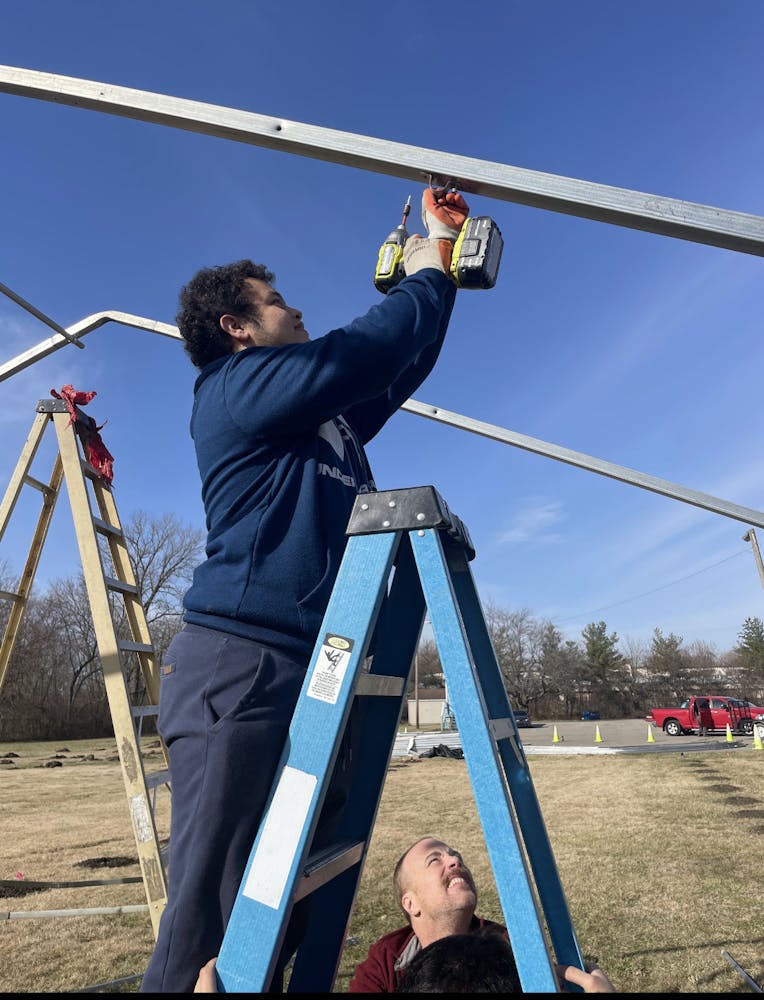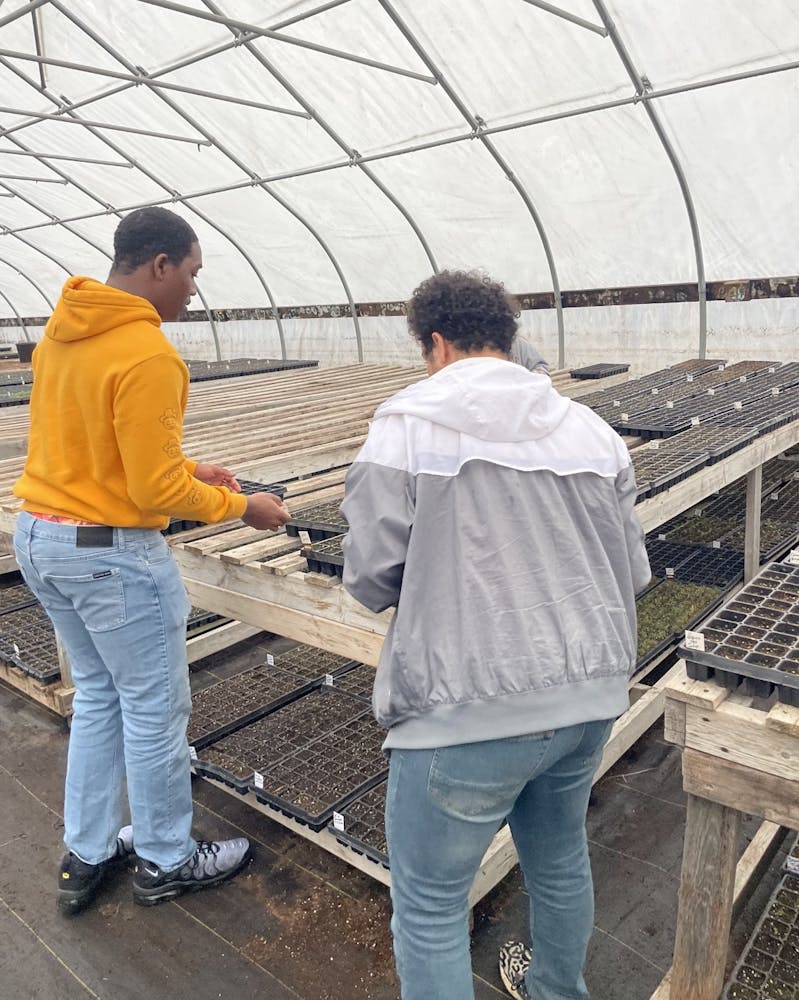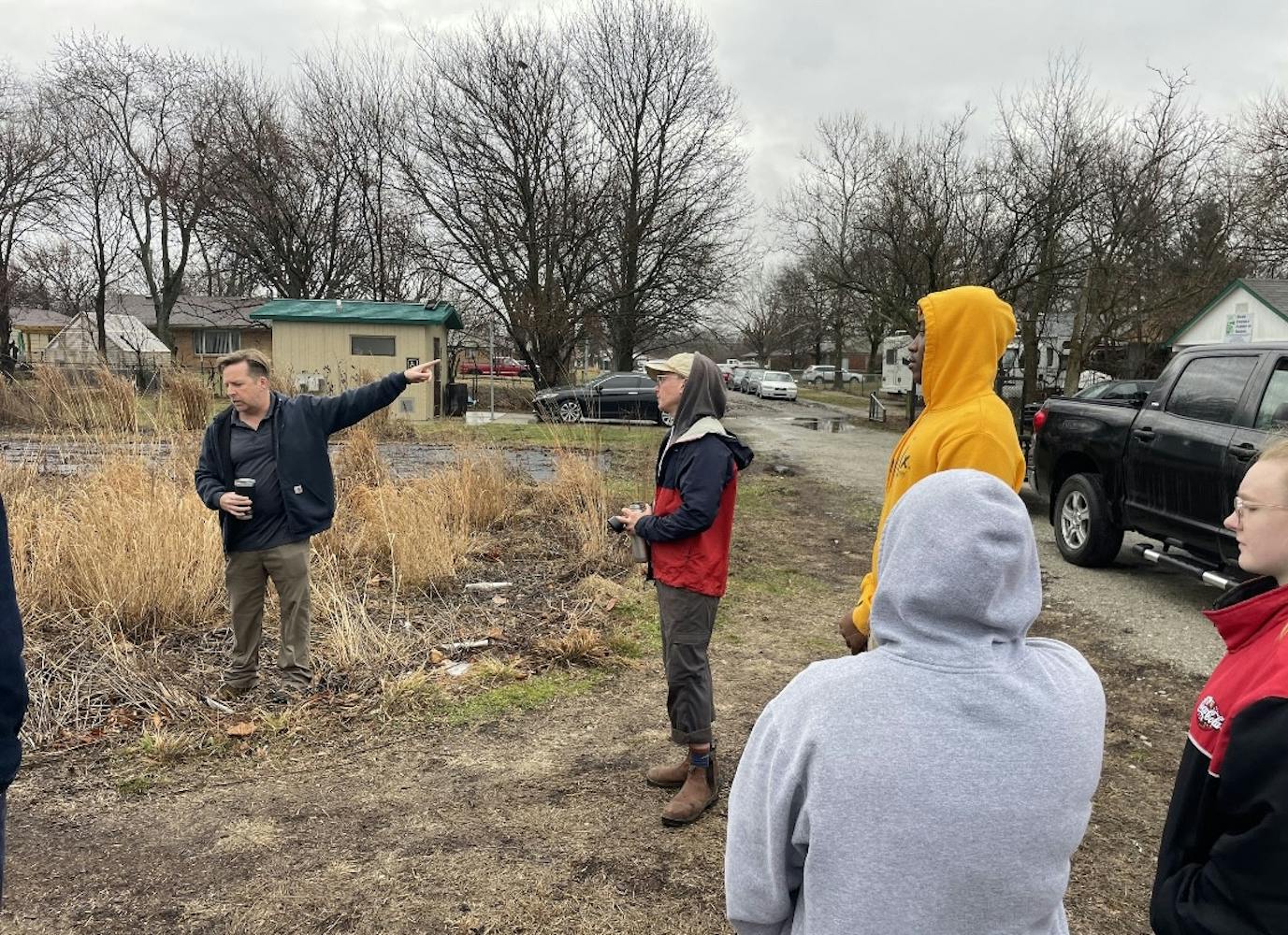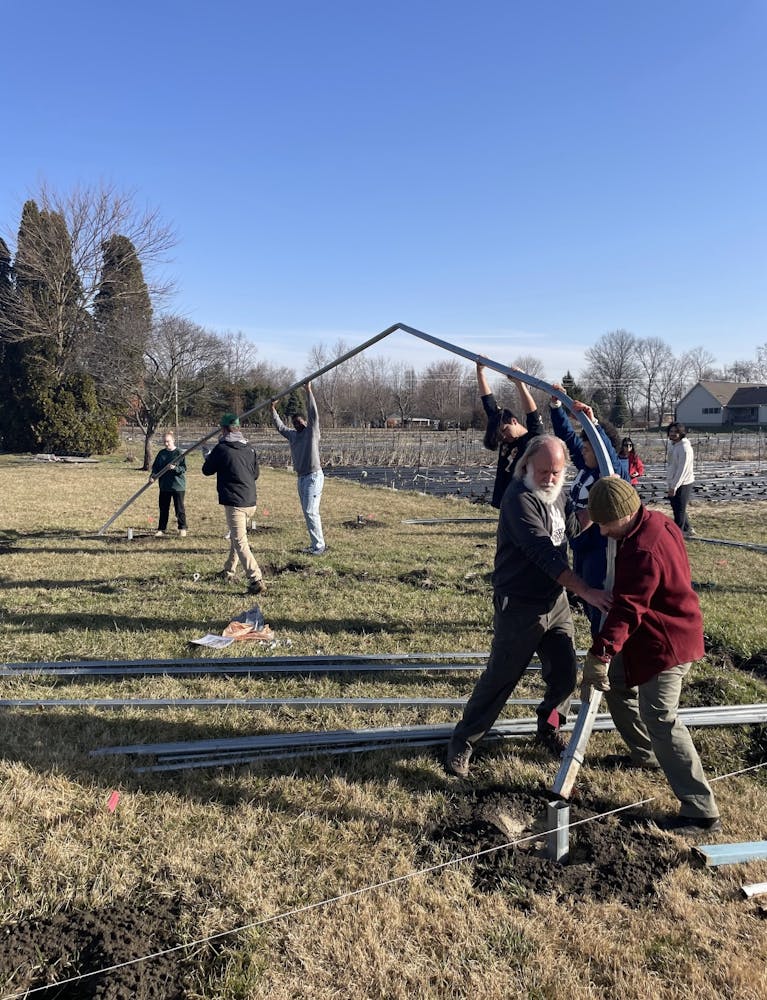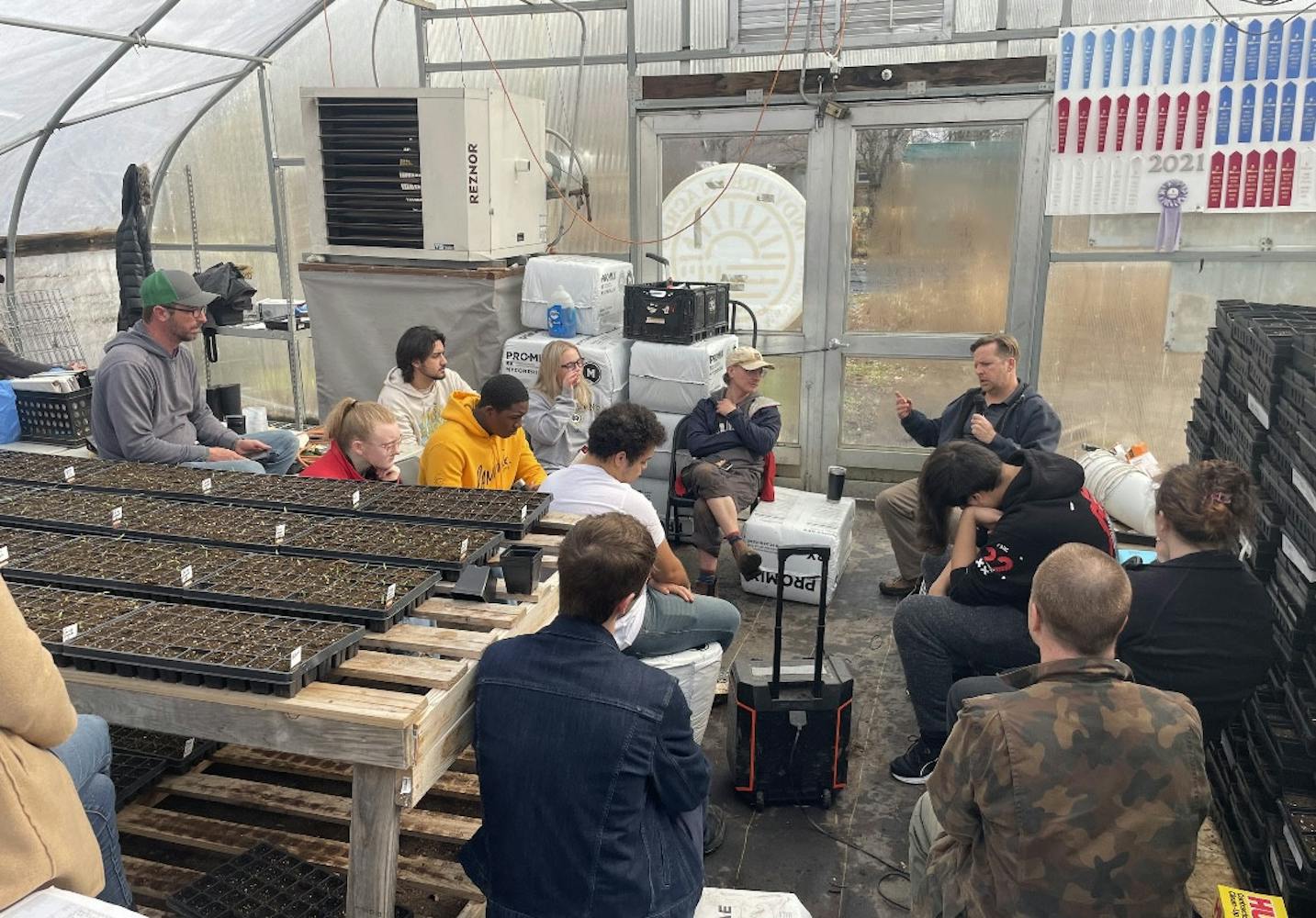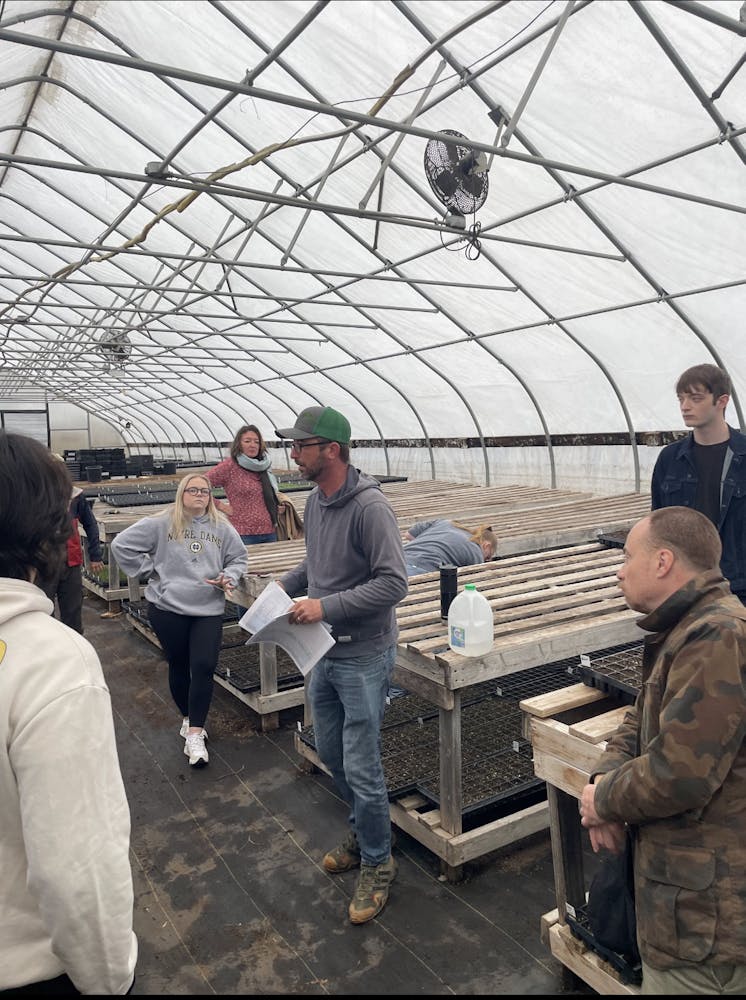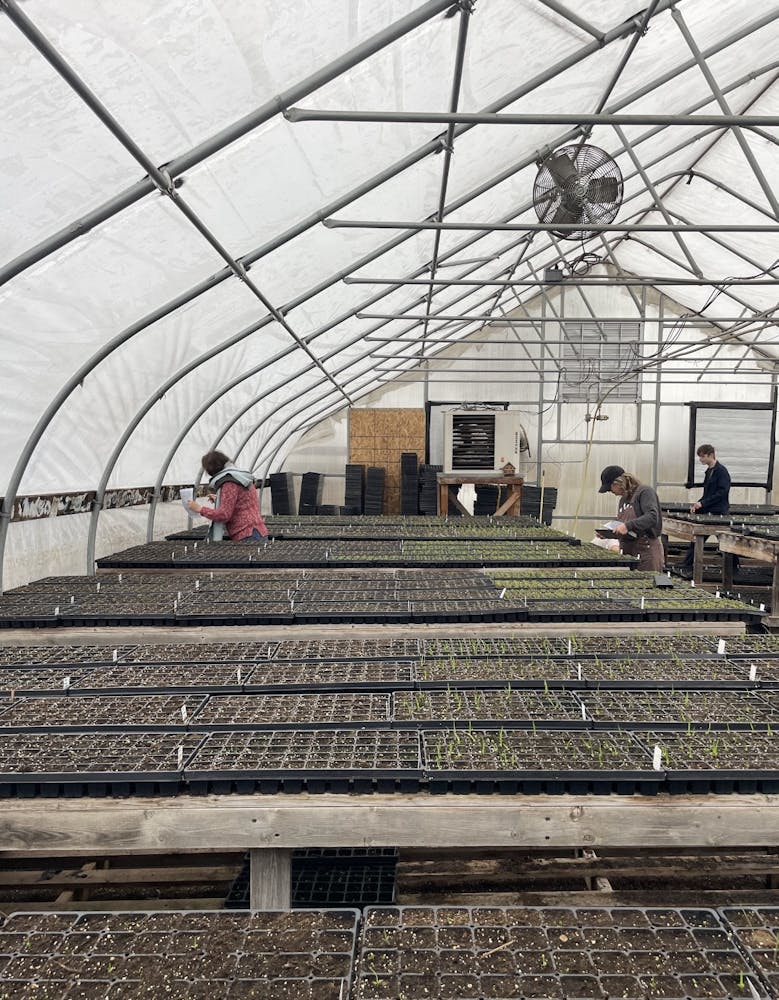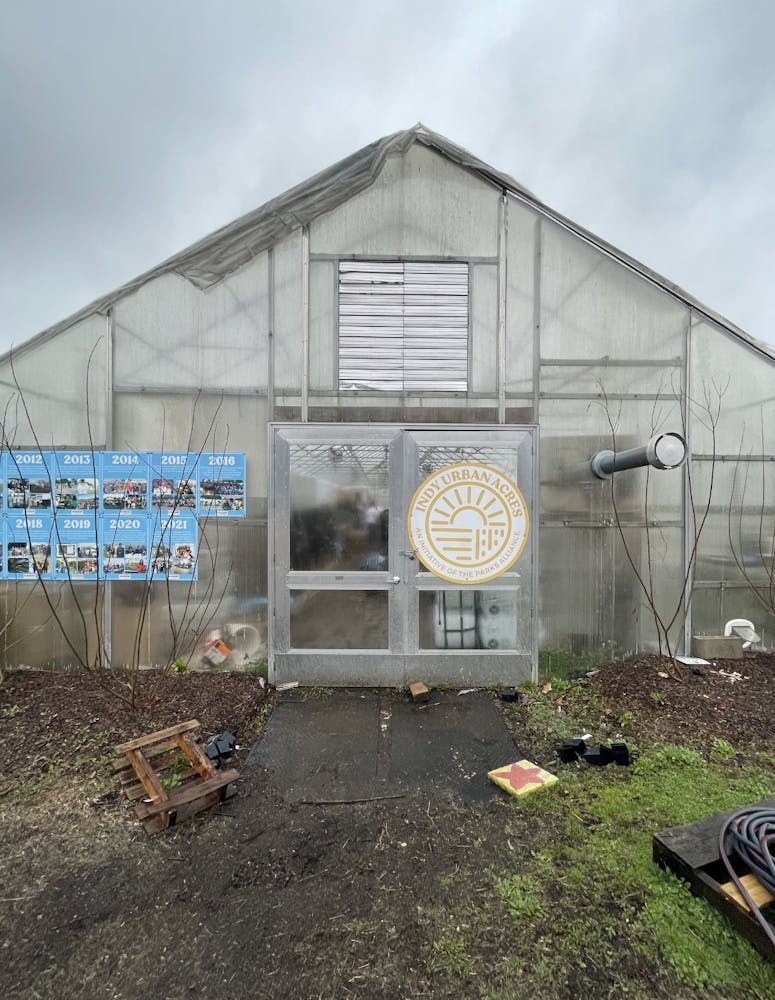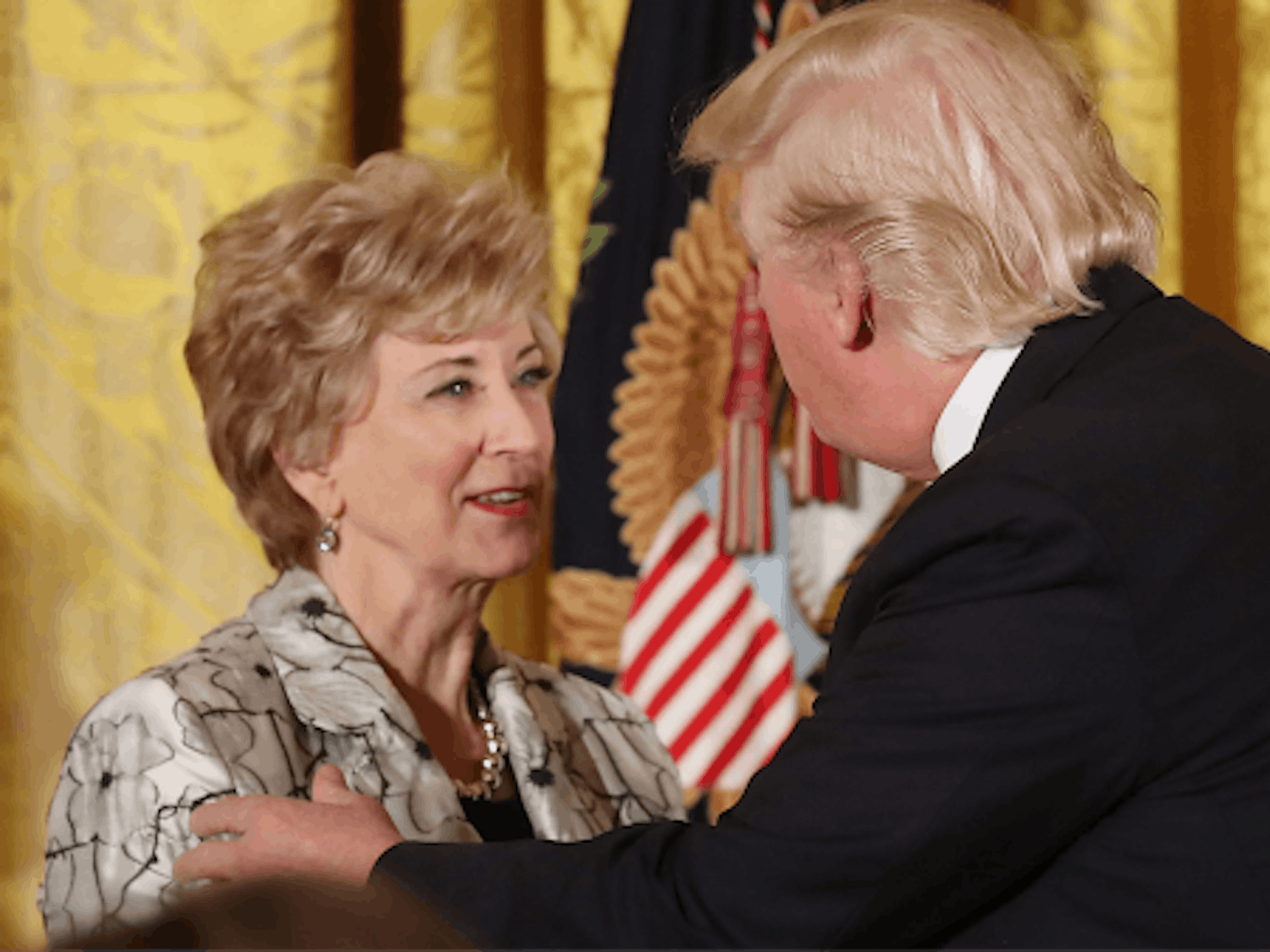Carissa Cullen, a sophomore majoring in geology, arrives in a blue t-shirt and boots for her geography class on a rainy February morning at Indy Urban Acres, 7901 Shearer Road on the East side of Indianapolis.
Other students pull up in their cars in hoodies and tennis shoes. The morning brings gray skies and rain to the farm that spans the distance of about seven football fields. A greenhouse sits on the lot surrounded by a line of trees and interstate I-70.
When the class begins at 9 a.m., professor Owen Dwyer and the students gather to be assigned tasks for the day. Students disperse around the greenhouse with their newly assigned tasks, which today, is recounting some of the native plants in the farm’s inventory. They then engage in class discussion about what they are learning, all for the next 2 ½ hours in the service-learning course, GEOG-G208 “Environment and Society”.
Dwyer works with the students, helping them on their scavenger hunt around the greenhouse filled with native flowers. He says that the class has a relaxed environment. Queen’s “Don’t Stop Me Now” plays in the background with occasional student voices singing along.
According to Dwyer, students can expect to engage in hands-on conservation work and learn about ways that the course could propel career interests in sustainability management, urban design and environmental sciences.
Cullen, who is the teaching assistant for the class, is interning at Indy Urban Acres. She explains the logic behind the patterns on the plant trays, which look like larger ice trays. The trays are made up of individual “cells” or “plugs” where the seeds sprout and then are transplanted to larger trays to then be put into individual pots.
“We’re looking for the cells that look like they have sprouts,” Cullen said. “Those are the ones being sold because we know they’ll grow.”
Each cell that has growth will be sold for $5 apiece, she said. Proceeds go to the Parks Alliance, the managing non-profit for Indy Urban Acres.
Kevin McDavid, environmental science major, said he took the class as a part of his degree map for his major. He thinks it will help with his career and in doing future field work.
“It doesn’t have everything to do with my concentration,” McDavid says, “but I think it will help in the work that I will be doing in my career.”
Dwyer said the course can be taken as an elective for most liberal arts majors and for students in the School of Science in environmental studies or sustainability management at IUPUI.
“Most of the students come from the School of Science and don’t get classes like this,” says Dwyer, the chair of the geography department. “They’ll be in things like chemistry labs and calculus.”
The course is organized by weekly meetings, reading assignments and experiential learning at the farms either at Indy Urban Acres or Faith United Methodist Church at 9031 East 16th Street in Indianapolis.
Shelby Craig, a sophomore who is transitioning from nursing at IUPUI to environmental and sustainability studies at IU Bloomington, says her advisor encouraged her to take the class as a part of her transition to her studies at Bloomington. She says she loves the course and that it has helped solidify her confidence about her path of study.
“At first I was doubtful about my transition," Craig said. "But I’ve come to figure out I really enjoy it. My favorite thing is the environment that we’re in, we’re not in a classroom setting.”
Anna Ritchotte (she/her) is a senior majoring in communication studies.

